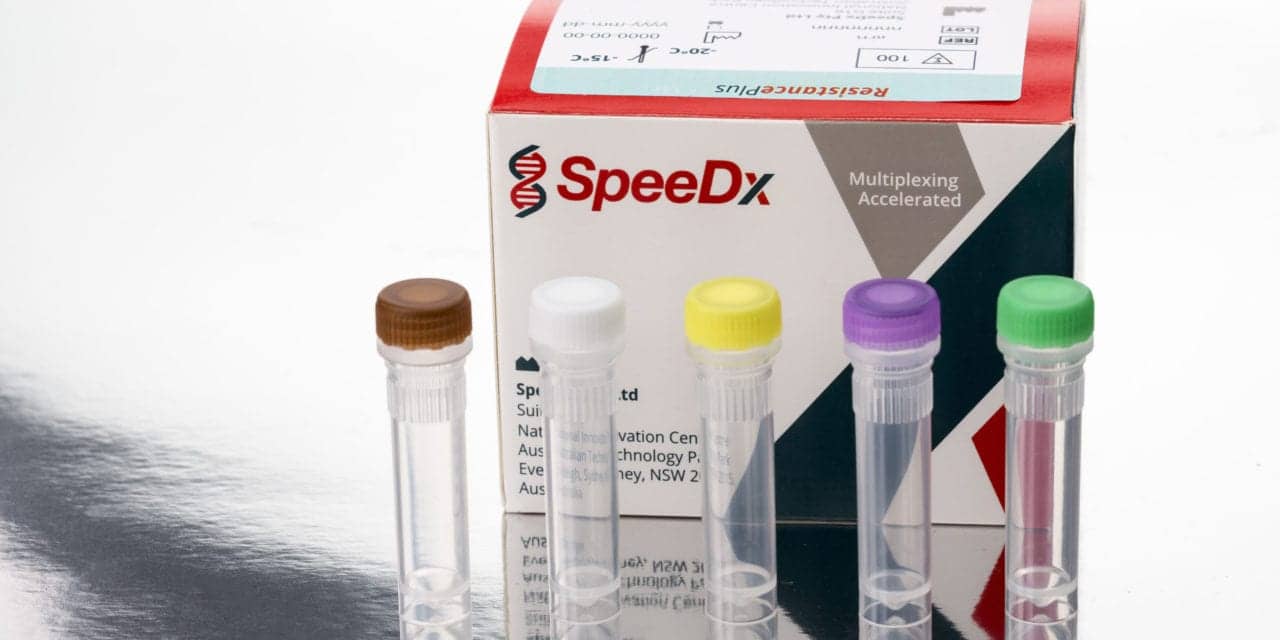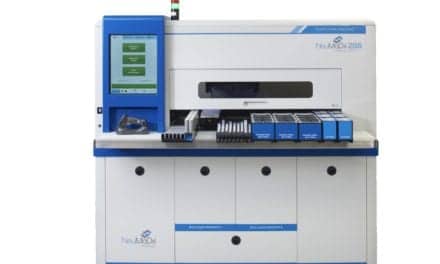FDA has listed the ResistancePlus MG positive control kit from SpeeDx Inc, Austin, Texas, for sale in the United States.
The SpeeDx control kit contains synthetic DNA to simulate Mycoplasma genitalium, as well as five mutations known to confer resistance to macrolide antibiotics. Macrolide-resistant M. genitalium is a challenging sexually transmitted infection (STI), and global management guidelines are currently being adapted to deal with the rise in resistance.
“This is an important product in our portfolio,” says Elisa Mokany, chief technology officer for SpeeDx. “M. genitalium is very difficult to culture, and positive material for quality control can be hard to come by.”
FDA listing allows for the kit to be marketed through the company’s recently incorporated US entity, SpeeDx Inc. The action by the federal agency also coincides with FDA registration of the Australian parent company—SpeeDx Pty Ltd—as a medical device manufacturing establishment.
Meanwhile, clinical trials remain on track for the ResistancePlus MG assay, according to the company. The SpeeDx ResistancePlus MG assay is the first commercially available diagnostic test that simultaneously detects M. genitalium and genetic markers for antimicrobial resistance. Since it was first launched in 2016, the assay has been widely adopted across Australia, Europe, and New Zealand, but it is not currently available in the United States.
“We have a strong focus on tackling the global antimicrobial resistance problem,” says Colin Denver, CEO of SpeeDx. “STIs are set to become the first incurable bacterial infections, and our ResistancePlus line of diagnostic tests empowers clinicians to make informed treatment decisions.”
Like gonorrhea, M. genitalium is becoming resistant to many antibiotic treatments, and has the potential to evolve into a so-called STI superbug, leading to exceedingly difficult-to-treat infections and threatening global public health. The disease can cause symptoms such as cervicitis, endometritis, pelvic inflammatory disease, and urethritis. In recent studies, it has been found to have a higher prevalence than gonorrhea.
Macrolide antibiotics, specifically azithromycin, are the first-line treatments for the rapidly growing problem of M. genitalium STIs, but in several countries resistance to such antibiotics has increased by up to 60%. This development has led to European and Australian guidelines on M. genitalium infections recommending that molecular detection of M. genitalium be complemented by an assay capable of detecting mutations associated with macrolide resistance.
For further information, visit SpeeDx.







